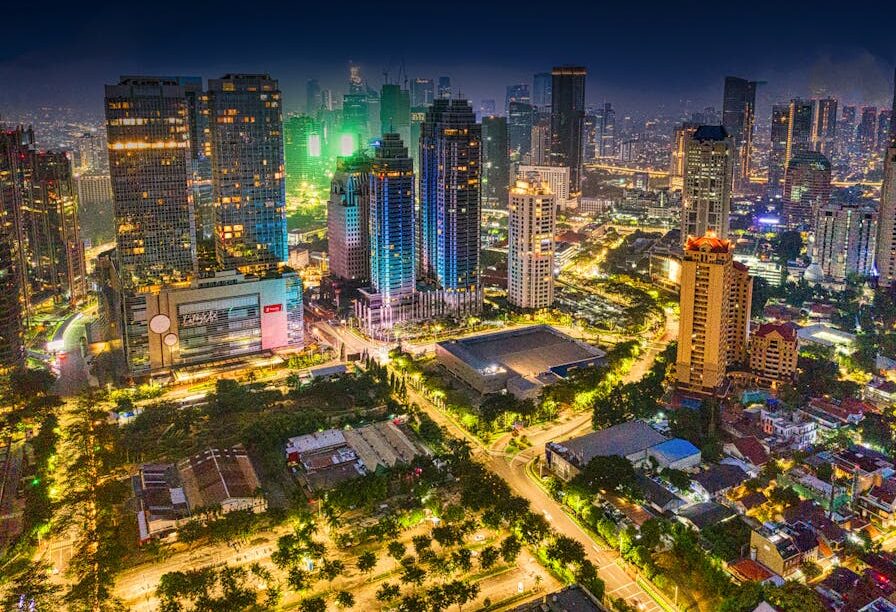In many ways, the COVID pandemic acted as a booster shot for internet usage globally. Indonesia witnessed a huge surge in internet usage. There were 212.9 million internet users in Indonesia in 2023, according to government data. In effect, Indonesia’s internet penetration rate stood at 77 percent of the total population. The Indonesian government recognized that a digital society forms the foundation of a thriving digital economy. In most cases, digitization got a strong boost in the aftermath of the pandemic. In an equal number of cases, organizations are facing the daunting task of moving their business online.
Just to give you a sense, MSMEs represent about 90% of businesses and more than 50% of employment worldwide. MSMEs are arguably one of the most important pillars in the structure of the Indonesian economy. According to data from the Ministry of Cooperatives and SMEs in 2021, there were around 64.2 million MSMEs, contributing 61.07%, or IDR 8.573,89 trillion, to the nation’s GDP.
The Transition
In a nation experiencing a rapid expansion of its digital landscape, encompassing online commerce, ride-sharing services, and financial services, amongst others, significant business prospects and job opportunities have emerged. This evolution has not only enhanced accessibility to services but also fostered deeper connectivity with the global community.
Nonetheless, Indonesia faces various hurdles on its path towards achieving a fully-fledged digital economy. According to recent McKinsey research, online commerce is an $8 billion-a-year sector that has a direct impact on local manufacturing.
President Joko Widodo has given clear directives to leverage the momentum of digital transformation spurred by the COVID-19 pandemic. In line with this, the Government of Indonesia, through the Ministry of Communication and Informatics (Kominfo), has unveiled the digital roadmap for 2021–2024. This roadmap aims to expedite Indonesia’s digital transformation agenda and is centered around key strategic sectors.
DC Infrastructure
Infrastructure is recognized as a key enabler for digital transformation in Indonesia. Data centers are at the heart of this digital transformation. All the major data center operators have strengthened their presence in Indonesia, as they see a huge uptick in digitization going forward.
For example, GDS, a prominent developer and operator of data centers across China and Southeast Asia, is showcasing the advantages of its SIJORI Connect strategy. GDS’ SIJORI Connect strategy involves expanding its investments across Singapore, Malaysia (specifically Johor), and Indonesia (including Batam and the Riau Islands).
In Indonesia, GDS took the lead by initiating the development of a data center campus in the Nongsa Digital Park, becoming a pioneer in the region. This initiative not only catalyzed a burgeoning market for nearshore development in Singapore but also solidified Batam’s position as a pivotal data center and subsea connectivity hub.
In September 2023, GDS revealed a strategic partnership with the Indonesia Investment Authority, the nation’s sovereign wealth fund, promising to accelerate the growth and expansion of the data center landscape in the area. This strategic move is fueled by burgeoning demand within the data center market. As artificial intelligence (AI) continues to drive the need for increased computing power, the demand for capacity in the region is on a steady rise.
Among its neighbors, Singapore faces limitations such as land scarcity and high electricity costs. These challenges amplify the demand for data center capacity, a demand that GDS aims to address through its SIJORI strategy.
The government has identified specific ICT infrastructure development priorities, including the completion of 4G infrastructure in more than 10,000 subregions by 2022.
The digital economy and new-age businesses
A recent study by Google, Temasek, and Bain & Company projected Indonesia’s digital economy to exceed USD 124 billion by the end of 2025. The Indonesian government is focusing on the digital onboarding of more than 64 million MSMEs across the country, encouraging them to ‘Go Digital and Go Global’. The government is targeting 30 million MSMEs to go digital by 2024.
Indonesia is actively nurturing a startup ecosystem with government-led initiatives like the #1000StartupDigital movement. Notably, Indonesia holds the distinction of producing the highest number of unicorns in Southeast Asia, including a ‘Decacorn’ with a valuation exceeding US$ 10 billion.
The recent merger of GoJek and Tokopedia into the GoTo Group signals a significant development, as it aims to create a super app covering e-government, transportation, education, logistics, financial services, and communications. The government is advocating for the proliferation of startups in various sectors such as financial services, industry, entertainment media (digital broadcasting), agriculture, fisheries, education, health, and real estate/digital cities.
Digitalisation Push
Currently, there are 202 million internet users, contributing $70 billion to Indonesia’s digital economy in 2021, with $146 billion projected in 2025, according to a World Economic Forum report. Utilizing digitisation properly can result in many new opportunities.
For example, Blue Bird Group recently decided to replace their existing proprietary dispatching system with a new open, in-house-developed dispatching system, along with an IoT device onboard in its fleet. Founded in 1972, the Blue Bird Group is the largest taxi operator in Indonesia, with a market share of 43 percent in Indonesia’s taxi services sector, including tie ups with Gojek.
This initiative helped the company achieve huge process efficiency gains as well as better customer insights. Similarly, KADIN Indonesia has created a platform to protect and assist MSMEs within the creative industry to gain access to capital and raw materials, marketing, including expanding the market locally, penetrating the export market, and expanding the coverage area through MSMEs digitalization.
Indonesian businesses are beginning to reap the benefits of digitalization, enabling them to reach a broader national and global audience while simultaneously reducing operational expenses and streamlining transaction processes. The success of the nation’s digital transformation is dependent on society’s readiness to adopt digital.
***
This story first appeared in our Special SIJORI issue of the Cloud and Datacenter magazine, and is being republished on the website in the run-up to SIJORI Week.



